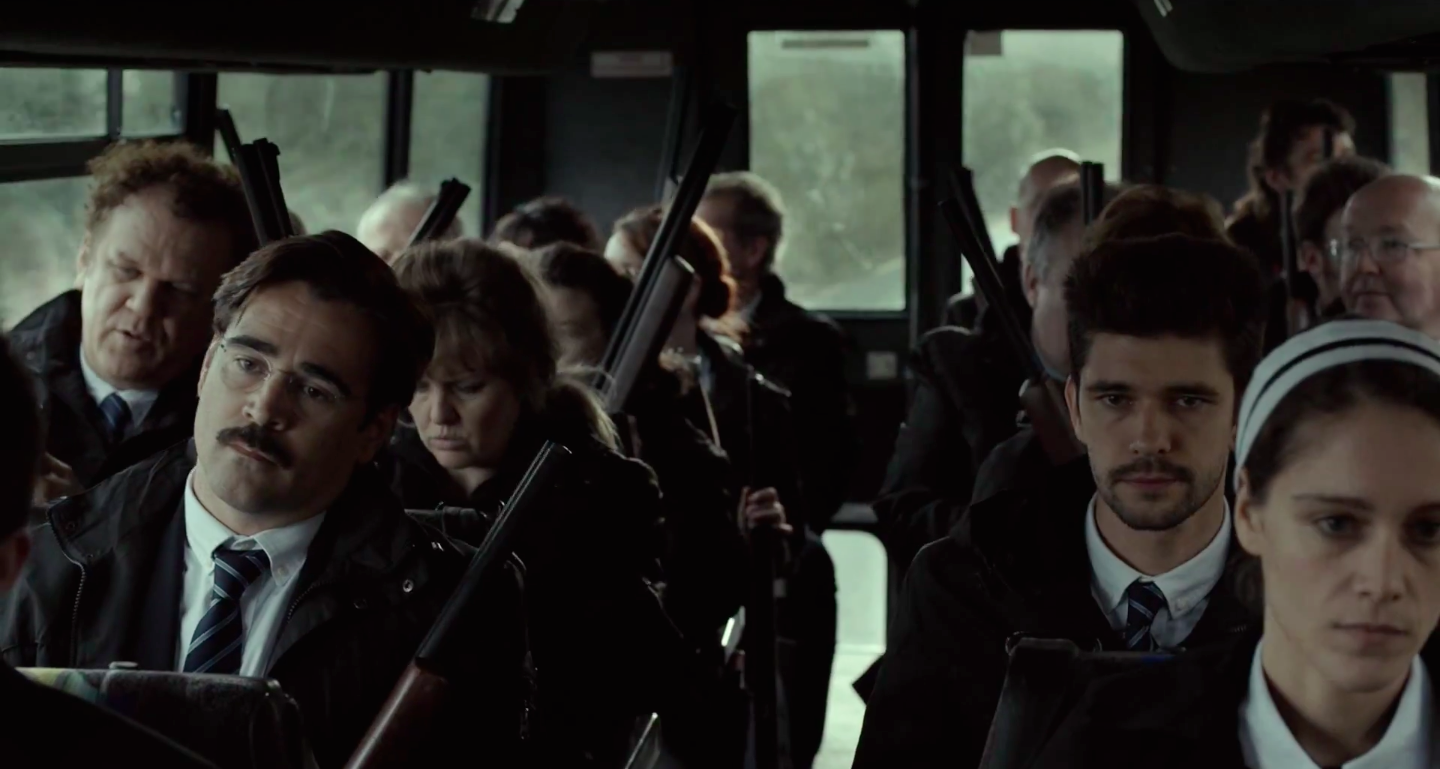So a woman is driving down the road. She stops, gets out, and we see her through the front window as she shoots one of three donkeys grazing in the rainy field. As she leaves the other donkeys crowd around the dead one.
This is the opening scene from the 2015 film, directed by Yorgos Lanthimos, called The Lobster. The film follows David (Colin Farrell) as he checks in at a hotel where the primary purpose is to find a mate. Should you fail to do so in 45 days, you will be turned into an animal of your own choosing. Interestingly, David brings a Border Collie with him, he tells the staff that it is his brother who had failed to find a mate at this hotel in the past. There are other instances of quirky dark humor spattered throughout the film. But instead of specific moments, the comedy of the film is developed through the details/world building (and boy is it bleak). The patients take part in hunts where they go into a nearby forest to search for guests that ran away, should they find someone, they shoot the “loner” with a tranquilizer. Should you find runaways, you are rewarded with an extra day for each person captured.
I know the whole single versus couples thing is overplayed on Valentines day, so I decided to talk about this movie months in advance. The film is quite obviously critiquing modern notions on what love and more precisely, contemporary emphasis on the importance of sticking to a couple based society. It is incredibly rigid. To fit into society A, you must follow rules 1-100 and to fit in society B, you must follow a new set of rules 1-100. So inevitably, should you choose to run away from the hotel and live your life amongst the “loners” then you have to exchange an old set of rules for entirely new ones. In other words, escape does not equal freedom in this world.
What is particularly interesting to me about this world however is that despite the lack of choices, there is an odd moment of freedom amidst the film and the title lets us know right away. David chooses to be a lobster, just like his brother chose to be a dog. Imagine if you believed in reincarnation and your preference actually mattered in what you came back as. Obviously, this choice is given in the contextual parameters of doom and gloom. But is it all that bad? For some reason, I felt it such an odd form of punishment. The hotel manager suggests in the film that becoming an animal is a second chance at love. However, other than the donkeys living together at the beginning, there is no evidence of animals living together in any social manner. In fact, when we see the forest, we see lone animals wandering about – like a camel that just casually walks in the background of one of the more important narrative scenes.
In that sense, I suppose being turned into an animal is terrible, given that all evidence seems to point towards the fact that once you are alone, you will always be alone. Also, although it is not quite clear, I believe you retain your human consciousness as an animal (in which case becoming an animal is a horrible notion). But if you do not retain any semblance of human cognition, then perhaps I’d want to be some form of predatory bird, because who does not want to fly?
But invariably, the animal we choose is highly reflective of who we are. The hotel manager even notes how everyone picks a dog, and that is why there are so many dogs in the world. The primary way that people select mates at the hotel is through “defining characteristics.” For instance, if a man has a limp, he must find a woman who has a limp. So if picking a dog is being a predictable and rather boring individual, is that particularly defining if so many people do the exact same thing? I’d imagine that the hotel manager would say, “Well that is why they are alone.” I guess the choice does not really matter in the end.
But who does not like dogs? Fuck this movie. Just kidding I love this movie.



Leave a Reply
Be the First to Comment!